AI Use Cases in Pharma: What You Can (and Can’t) Do with Salesforce and Veeva Today
Jun 09, 2025 | 4 min read

The AI Promise Meets Pharma Reality
AI is everywhere. From search engines to clinical trials, the phrase "AI-powered" seems to follow every product and pitch. But in the highly regulated world of pharmaceutical CRM, the line between what AI could do and what it actually does is significant.
For Analytics & Insights,Commercial Ops, Medical Affairs, and IT leaders, Salesforce and Veeva represent the two most common platforms in the life sciences CRM stack. Both claim to offer AI capabilities. But how do these offerings hold up in real-world pharma settings?
This post explores what your teams can and can’t do with AI in pharma CRM today—with a focus on specific use cases in Salesforce and Veeva. We’ll highlight technical limitations, practical opportunities, and what to prioritize next.
What Pharma Teams Can Do with AI Today
Let’s start with what’s real. While no CRM system can run an entire launch autonomously, there are several high-impact use cases already in play across Commercial and Medical teams.
Commercial Use Cases
1. Pre-Call Planning and Rep Guidance
Salesforce users can leverage Einstein GPT and Agentforce to generate summaries of past interactions, surface recent HCP content engagement, and recommend next best actions. AI can also prioritize call lists based on formulary changes or prescription trends.
Veeva offers similar capabilities through integrations and its MyInsights dashboards, but it typically requires more services effort to achieve the same level of personalization.
2. Segmentation and Targeting
Veeva Link offers a curated data solution that aggregates and updates profiles for key opinion leaders (KOLs) and healthcare professionals (HCPs). It’s a powerful tool for tracking scientific contributions, publications, and field activity across global markets. Profiles are enriched with data from over 250,000 public sources and integrated into Veeva CRM via APIs, making it easier for medical and commercial teams to understand who to engage and why.
However, Salesforce takes a different approach—less focused on providing curated HCP data out-of-the-box, and more focused on enabling enterprise-wide data actionability through Salesforce Data Cloud.
Rather than offering a prebuilt HCP database, Salesforce empowers Analytics & Insights teams to ingest and harmonize HCP, payer, patient access, and third-party datasets—structured or unstructured—from any source. The result is a 360-degree view of each stakeholder that goes beyond static profiles:
- Real-time updates from claims feeds, formulary status, and digital behavior
- Zero-copy architecture that connects to external data without duplicating it
- Native AI agents that can trigger next-best-actions, territory adjustments, or triage suggestions based on new HCP activity
- Governed customization to include internal notes, field intelligence, and custom segmentation models
While Veeva Link excels in delivering ready-to-use, curated data, Salesforce Data Cloud shines in organizations that want flexibility, live interoperability, and agent-driven decision support.It’s a question of content access vs. content adaptability—and the right answer depends on your AI maturity and operational goals.
3. Campaign Optimization
With Data Cloud, Salesforce can unify data from email, SMS, portal visits, and rep feedback toidentify engagement drop-offs and optimize message timing. These insights are actionable in near-real time.
Medical Affairs Use Cases
1. Medical Inquiry Triage
Salesforce AI agents can route medical inquiries to the correct team, suggest draft responses based on regulatory guidance, and flag potential adverse events for compliance review.
2. Literature Monitoring and Content Personalization
Einstein can help scan publications, detect relevance for specific therapeutic areas, and notify MSLs of updates. Personalized scientific content recommendations are also possible based on prior HCP interactions.
3. Key Opinion Leader (KOL) Engagement
Salesforce enables AI to assess the influence of KOLs, cross-reference scientific activity with social engagement, and propose customized engagement plans.
Veeva MedComms tools are designed for content dissemination but have less AI-driven personalization or automated insight generation.
Where Salesforce and Veeva Diverge
On the surface, both platforms offer AI. But under the hood, the architecture makes a major difference.
Salesforce: Built-In AI
Salesforce has native AI built into the platform via Einstein and Agentforce. This means AI agents can:
- Access all platform data via the Data Cloud
- Run in real time, not just batch mode
- Be customized using low-code tools like Flow and Prompt Builder
- Integrate natively with Slack, Tableau, and MuleSoft
Because it’s part of the Salesforce Platform, these tools require minimal integration to deploy. More importantly, they inherit the security, compliance, and governance controls of the broader Salesforce ecosystem.
Veeva: Add-On AI
Veeva doesn’t have a native AI engine. Instead, its AI functionality is layered through integrations (e.g., with third-party analytics platforms) or prebuilt reports (e.g., in MyInsights).
While Veeva provides strong visualizations and CRM-specific reports, advanced AI capabilities often require custom development, separate data models, or external services. This makes AI more complex and expensive to scale.
Bottom line: if you’re looking to deploy multiple AI use cases across medical, commercial, and IT, Salesforce is built for it. Veeva can handle it, but with more friction.
The Limitations of AI in Pharma CRM
For all its promise, AI in pharma is still constrained by technical, regulatory, and organizational realities.
1. Data Fragmentation
Even with robust CRMs, life sciences companies often face siloed data. AI requires unified, high-quality inputs to work effectively. Without strong data governance, insights can be biased, incomplete, or irrelevant.
Salesforce tackles this with Data Cloud, which enables zero-copy integration across structured and unstructured data. Veeva lacks an equivalent tool, meaning IT teams often shoulder the burden of data prep.
2. Regulatory Barriers
AI-generated content must still pass MLR (Medical, Legal, Regulatory) review. Even with draft generation capabilities, teams need strict oversight to prevent compliance risk. This slows down potential gains in speed.
3. Explainability & Trust
Field reps, MSLs, and compliance teams need to understand why an AI made a recommendation. Without explainability features, even a high-performing model may go unused. Salesforce’s AI tools include reasoning chains and prompt transparency. Most third-party AI layers do not.
4. Organizational Readiness
Technology isn’t the only challenge. Many pharma orgs don’t yet have the internal AI literacy, operating model, or change management structure to fully support these tools. Education, governance, and process redesign are just as critical as choosing the right platform.
Planning for the Next 12–18 Months
So what should you do now?
Start by identifying high-friction areas in your commercial or medical workflows. Then map those against:
- Data availability
- Regulatory guardrails
- User readiness
If you’re already using Salesforce, AI tools like Einstein GPT, Agentforce, and Data Cloud are available to pilot now. Start small: a guided call summary agent for your reps, or a literature monitoring bot for MSLs.
If you’re using Veeva, consider whether your AI ambitions justify a hybrid approach. Many organizations are integrating Salesforce Data Cloud and AI capabilities alongside their Veeva CRM to get the best of both worlds.
Above all, focus on measurable outcomes: fewer hours per call report, faster inquiry triage, higher HCP engagement. This is where AI proves its value.
Conclusion: AI Isn’t Magic—But It Is Real
AI isn’t about replacing your team. It’s about helping them do more of what matters. In pharma CRM, that means:
- Automating what can be automated
- Guiding what should be guided
- Scaling what works
Salesforce and Veeva both play roles here, but if your organization is ready to move fast, experiment, and scale, Salesforce offers the platform and tools to lead the way.
Curious how AI can drive efficiency and engagement across your commercial and medical teams? 👉 Talk to CI Health about our Salesforce AI Services
FAQ
Q: Is Salesforce Einstein GPT compliant with life sciences regulations?
Yes, it includes built-in privacy controls and can be paired with Salesforce Shield for HIPAA/GxP use cases.
Q: Can I use Salesforce AI without migrating off Veeva?
Yes. Many orgs use Salesforce Data Cloud and AI capabilities alongside Veeva, especially for analytics and automation pilots.
Q: How long does it take to deploy a Salesforce AI use case?
With CI Health, most teams see value in 60–90 days for targeted pilots like rep guidance or literature monitoring.



 Gradial
Gradial  PEGA
PEGA 




